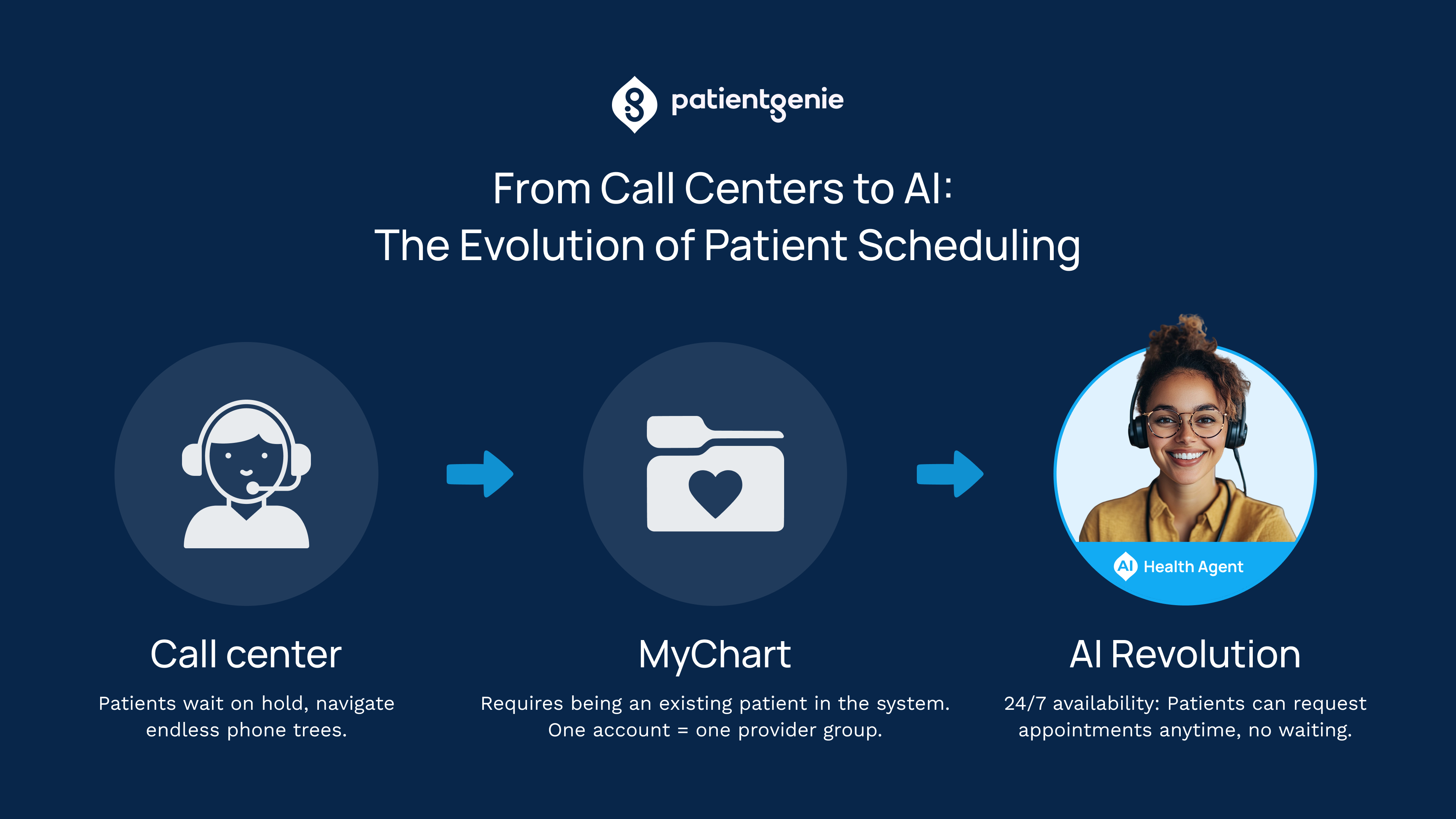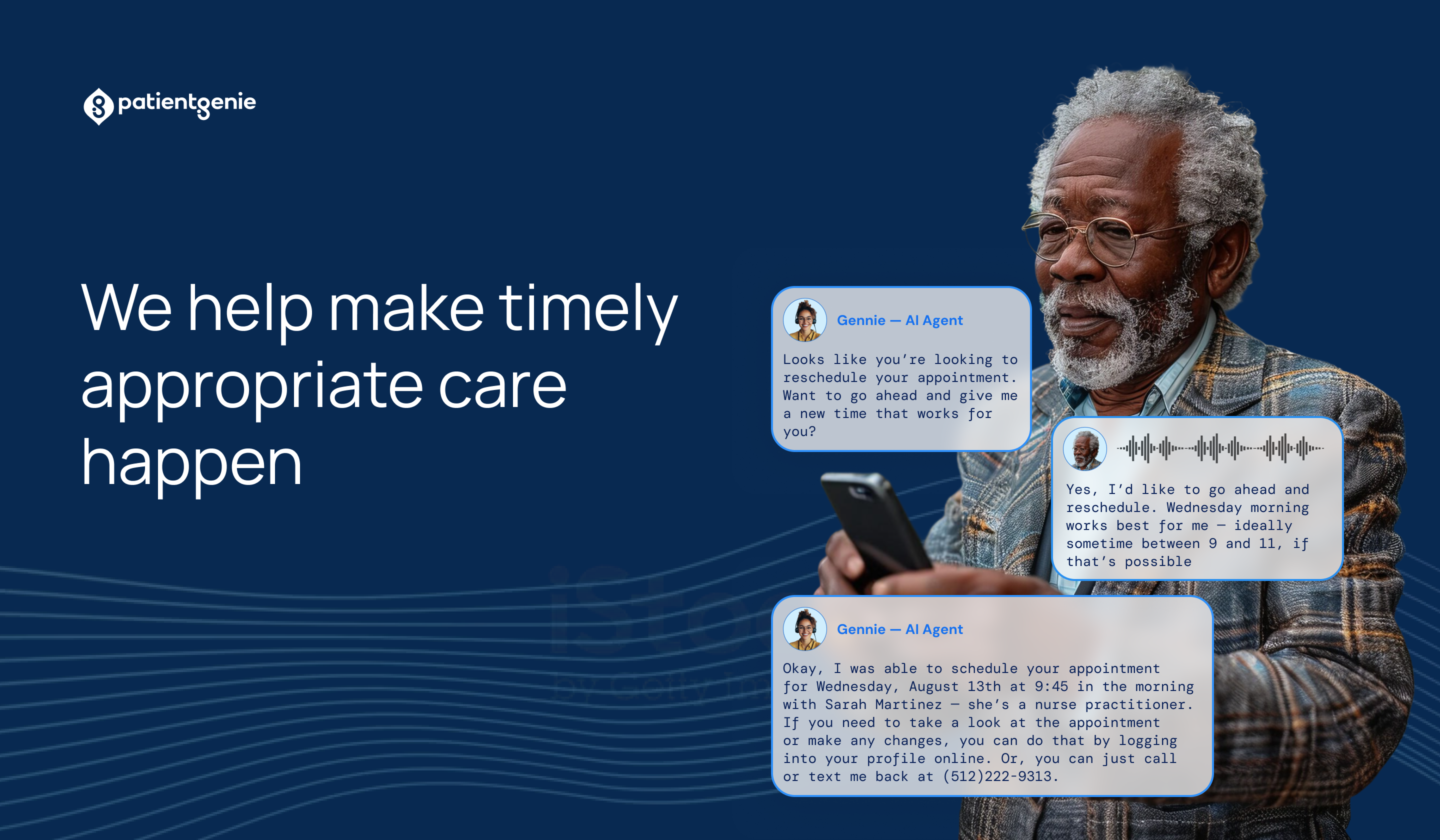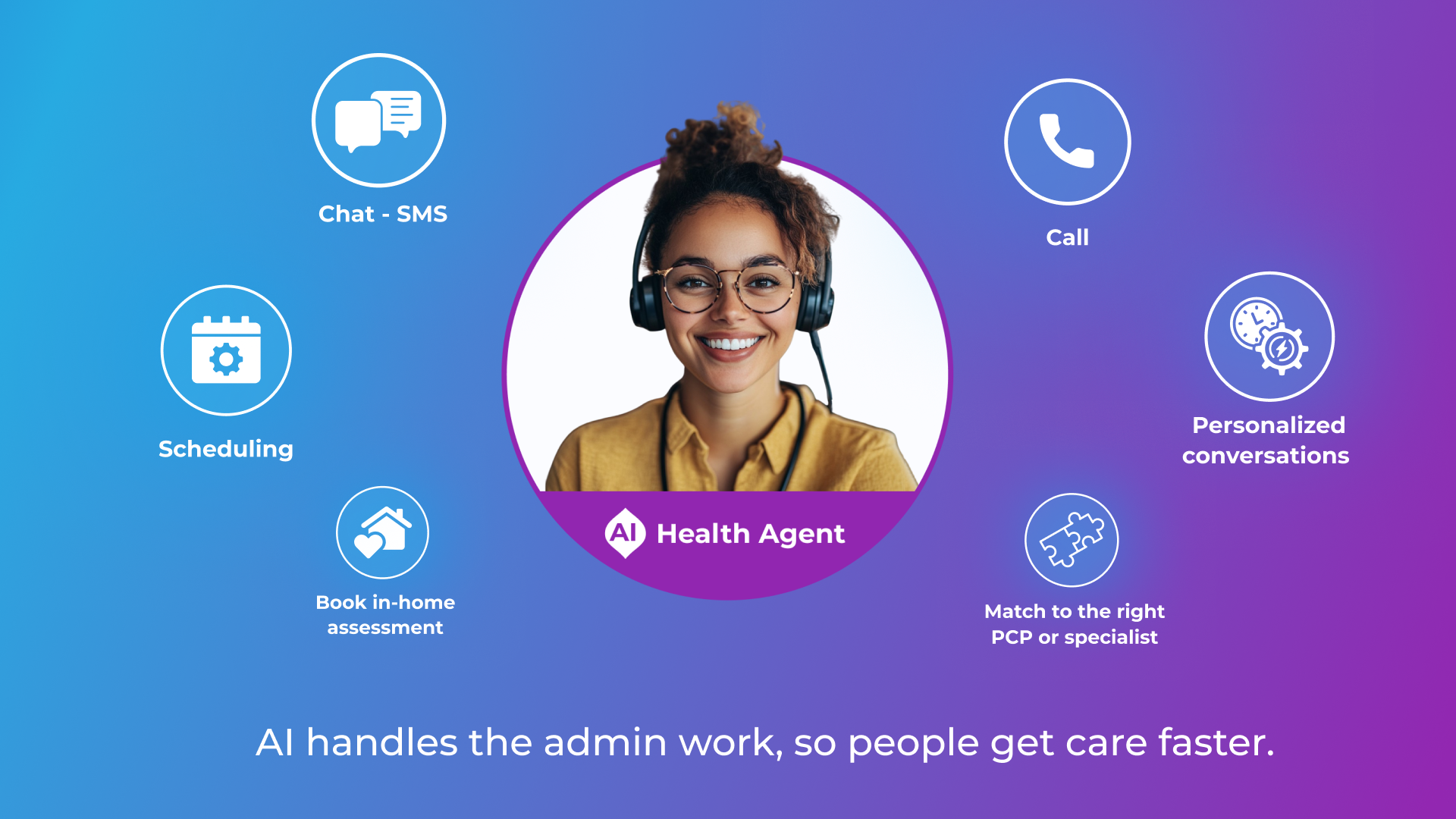2/13/2025
The Cost of Delay: How Missed Appointments Can Lead to Life-Changing Health Events

Healthcare is full of life-altering moments. Some happen in the blink of an eye - a diagnosis, a surgery, a medical emergency. Others unfold over years, often in silence, as conditions develop undetected, waiting for the right moment to strike.
I recently had one of those moments myself - a heart attack caused by three completely blocked arteries. I eat well, exercise regularly, and don’t drink or smoke. I’m the guy who should have been in the clear. And yet, I wasn’t. Looking back, I know exactly what went wrong: I delayed scheduling my annual check-up and the necessary screenings given my family history.
It’s a harsh reality, but one that countless people face every day. Delaying a simple doctor’s appointment can be the difference between early intervention and a life-threatening crisis. The cost of delay in healthcare is more than just a personal risk - it’s a systemic issue that affects millions of people, driving up costs, worsening outcomes, and putting lives on the line.
The Ripple Effect of a Missed Appointment
Missed and delayed medical appointments don’t just affect individual patients - they have far-reaching consequences for families, healthcare systems, and employers. Here’s how:
1. Minor Issues Become Major Problems
- Preventive screenings and annual check-ups catch conditions before they become critical.
- Missing routine appointments means that high blood pressure, diabetes, or heart disease can go undiagnosed for years - until they lead to a crisis.
2. Higher Costs for Everyone
- When patients delay care, they often end up needing more expensive treatments down the road (ER visits, surgeries, hospitalizations).
- The U.S. healthcare system loses billions every year due to preventable emergency care costs.
3. Overburdened Healthcare Systems
- When people don’t schedule in time, health systems face appointment bottlenecks, forcing patients into last-minute, high-cost urgent care settings.
- Preventive and routine care reduce the burden on hospitals and make healthcare more efficient.
4. Emotional & Financial Toll on Families
- A missed check-up today can mean a devastating health event tomorrow.
- Families bear the weight of these crises - both emotionally and financially - when avoidable health issues lead to lost wages, long-term care, and unexpected medical bills.
Why Is Scheduling So Hard?
If everyone agrees that preventive care saves lives, why do people still put off appointments? The answer is simple: healthcare access is broken.
- Confusing provider networks – Finding the right doctor who accepts your insurance shouldn’t feel like a research project.
- Long wait times – Many specialists book out for months, making it easy for patients to delay care even further.
- Lack of proactive scheduling – Most patients are left to figure out when and where to book appointments on their own.
- Inefficient systems – Calling a provider, waiting on hold, and playing phone tag are barriers that discourage people from scheduling care.
This is where AI-driven solutions can change the game.
Removing Barriers: How AI Can Help Prevent Life-Threatening Delays
At PatientGenie, we are tackling this problem head-on. Our AI-powered scheduling solution removes friction by ensuring patients:
- Get matched with the right provider (no more network confusion or delays)
- Can schedule in real time (without phone calls or waiting on hold)
- Receive proactive appointment reminders (so they never miss a critical check-up)
The goal isn’t just to help people find care - it’s to make sure they actually get care. Because every missed appointment is a missed opportunity to prevent something worse.
A Personal Wake-Up Call
I know firsthand how easy it is to push off routine care. But I also know what’s at stake. If I had scheduled my check-up on time, I might have avoided a heart attack altogether.
This isn’t just my story - it’s the story of millions of people who delay care without realizing the consequences.
The healthcare system needs to change. We need to make scheduling frictionless, proactive, and accessible. Because at the end of the day, the cost of delay is too high.
What’s Your Next Step?
- Have you scheduled your next check-up? Don’t wait - do it today.
- Are you in a position to improve patient access? Let’s discuss how we can eliminate barriers together. Let’s talk about how AI can improve patient access and reduce preventable crises.
- Want to be part of the change? Join us in making healthcare access effortless.
Because a simple appointment could save your life.
- Alex Zoller, Committed to Improving Healthcare Access
Last news
From Call Centers to AI: The Evolution of Patient Scheduling
For decades, scheduling a healthcare appointment has meant waiting on hold, navigating phone trees, and hoping someone answers before you give up.
Now, a new era is here. AI-powered scheduling agents work around the clock to match patients with the right provider and book appointments — calling offices, verifying availability, and even making multiple attempts until the job is done.
9/24/2025PatientGenie 2030: What a World with Frictionless Access Might Look Like
What if getting care was as simple as saying, ‘I need help’? By 2030, it can be. At PatientGenie, we’re building the infrastructure for frictionless healthcare access—AI agents that call providers, engage members, schedule in-home assessments, match patients with PCPs, and coordinate follow-ups automatically. No portals. No hold music. No missed care. This isn’t the future—it’s happening now, and it’s changing how patients, providers, and health plans connect. Let’s make 2030 happen, now.
8/5/2025


